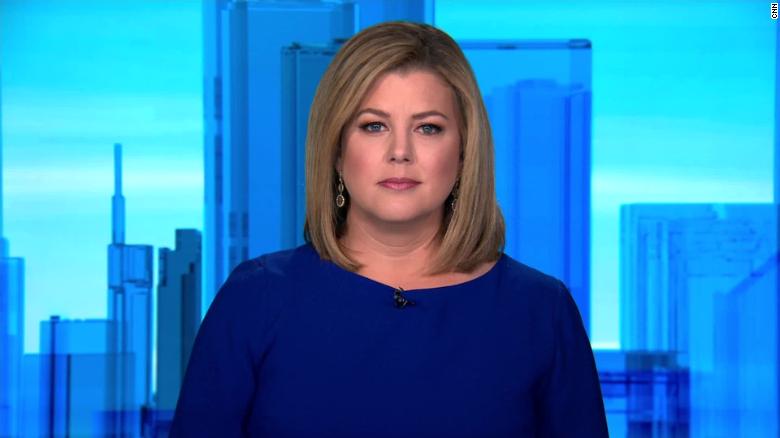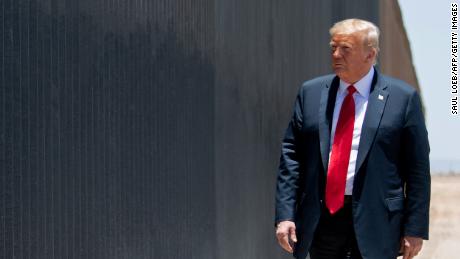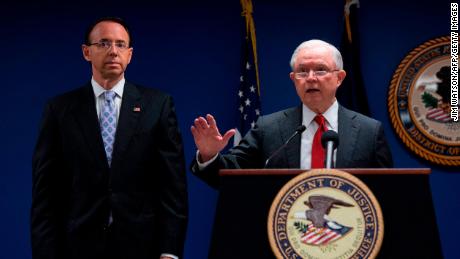(CNN)More than two years since migrant families were torn apart at the US-Mexico border, disturbing details of what occurred behind the scenes continue to spill into public view -- again putting into focus the policy that came to define the Trump administration's immigration legacy and cement its approach to immigrants.
In 2018, the Trump administration announced the so-called "zero tolerance" policy, in which the Justice Department initiated criminal prosecutions of every adult illegally crossing the border. Doing so resulted in the separation of thousands of families, including those with infants, some only a few months old, because children can't be kept in federal jail with their parents.
The public outcry over the policy and its consequences was swift. So too was the case late Tuesday, when The New York Times reported that top Justice Department officials were the "driving force" behind the policy.
In one May 2018 episode detailed in the Justice Department inspector general draft report that the Times reviewed, then-Attorney General Jeff Sessions told a group of prosecutors on a conference call, "We need to take away children," according to participants' notes, the Times reported.
The "zero tolerance" policy has come to encapsulate the lengths the Trump administration is willing to go to in order to deter migrants from coming to the US, regardless of their circumstances, and the disarray that ensues when agencies are unprepared.
Trump campaigned on cracking down on immigration to the US, pledging to build miles of border barriers and overhaul the legal immigration system. Combined, those promises have amounted to a series of policy changes designed to keep many immigrants out of the US.
Since the administration backtracked its "zero tolerance" policy, migrants have faced insurmountable challenges to claim asylum, have been required to stay in Mexico in deplorable conditions for their immigration hearing in the United States and, most recently, have been swiftly returned after being encountered at the southern border as a result of a public health order linked to the coronavirus pandemic -- to name a few.
The desperation of some waiting in Mexico for their US immigration proceedings -- a policy informally known as "remain in Mexico" -- also led to more than 300 children crossing the border alone despite initially arriving with parents or relatives.
Unlike "zero tolerance," however, these policies have at times flown under the radar despite levying harm against migrants seeking asylum in the United States.
"Once you start down the path of deterrence through the inflicting of harm, it's very hard to find a stopping point," said Aaron Reichlin-Melnick, policy counsel at the American Immigration Council, a nonprofit group that advocates for the rights of immigrants.
The US has for years relied on deterrence policy to dissuade migrants from coming to the country, but it often fails to take into account the driving factors behind migration, like economic disparity or violence and persecution. For example, during fiscal year 2019, following "zero tolerance," border arrests reached record highs.
"The goal of deterrence-based policies is to inflict a sufficient amount of pain in order to stop people from coming in the first place, and as we've seen with zero tolerance, the level of pain the Trump administration was willing to inflict on asylum-seeking migrants was enormous, including separation of parents and children," Reichlin-Melnick said.
Policies like "remain in Mexico," for example, have outsourced the harm to other countries, he added, even though the onus is still on the US.
Democratic presidential nominee Joe Biden has said he would reverse the Trump administration's immigration policies but much of that message has been boiled down to refusing to separate families.
The focus on one policy risks sidelining the litany of changes implemented under Trump that seek to stop asylum seekers and refugees.
Amid the highest levels of displacement around the world, for example, the Trump administration has gradually pulled back how many refugees it's willing to accept -- from tens of thousands under previous administrations to a historic low of 15,000 in the upcoming fiscal year.






